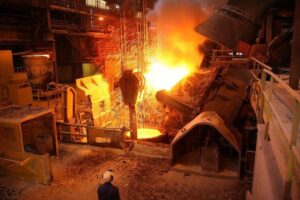Lhyfe and UGITECH sign MoU to decarbonise operations using green hydrogen

This site, which is to be located in the heart of the French Alps where the 2030 Winter Olympics will be held, should also contribute to a sustainable model of winter tourism.
This is the first agreement in Europe to replace fossil fuels with green hydrogen in the stainless steel sector.
As part of its roadmap for decarbonising its business, Swiss Steel Group, one of the world’s largest producers, processors and distributors of long special steel products, has decided to use green hydrogen to replace the natural gas used in some of its thermoprocessing equipment.
The steelmaker, which produces around 200,000 tonnes of steel a year, has selected Lhyfe to support it in this energy transition. This project could avoid emitting 16,000 tonnes of carbon dioxide a year.
Philippe Desorme, vice-chief executive officer at Lhyfe, said: “We are delighted to sign this memorandum of understanding with Ugitech, whose commitment to decarbonisation we commend. The steel sector is a major consumer of fossil fuels and is one of the industrial sectors that should be decarbonised as a priority.
“The energy transition is going to become increasingly necessary to ensure the long-term survival of our industries, and green hydrogen is emerging as one of the pillars of this transition. It can and must now be deployed as quickly as possible, including in the steel sector.”
Frédéric Perret, director of development at Ugitech, said: “Ugitech is coordinating the HYDREAMS project, which aims to demonstrate the feasibility of substituting natural gas with decarbonised hydrogen in thermal steel transformation processes (reheating and heat treatment furnaces).
“HYDREAMS has nine European partners and has received a grant from the European RFCS fund.
“The next step is to roll out this new solution to all systems for which direct electrification is not a compatible option. This is the purpose of this MoU with Lhyfe.”













